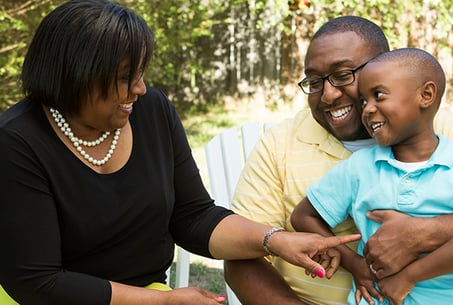Outstanding Free Home Visiting Resource
2 min read
Date Published: 12/20/2018
Last Updated: 12/20/2018
National Fatherhood Initiative Blog / Latest Articles
2 min read

National Fatherhood Initiative® (NFI) helps state home visiting programs and local direct-service home visiting programs to more effectively engage dads. That’s because one of the most challenging settings in which to engage dads is when a home visitor makes a house call to help, primarily, expectant and new parents, and parents of preschool-age children, to raise a healthy child.
The importance of home visiting programs is reflected in the money the federal government has poured since 2010 into funding them. Earlier this year, Congress continued its commitment to the Maternal, Infant, and Early Childhood Home Visiting (MIECHV) program to the tune of $400 million per year through fiscal year 2022. Administered by a partnership between two arms of the U.S. Department of Health and Human Services—the Health Resources and Services Administration and the Administration for Children and Families—state agencies that house home visiting programs receive funds that they award to local home visiting programs operated by a variety of agencies.
NFI’s work with home visiting programs centers on helping staff integrate father-specific resources into the evidence-based home visiting program(s) they use. We help them to understand how they can integrate father-specific resources and maintain the fidelity of their home visiting program(s). There are many such home visiting programs. So many, in fact, that most states fund implementation of a handful of programs or more. Some of the most well-known and widely-implemented of these programs include:
Because there are so many home visiting programs, it can be a challenge to wrap your arms around them all. That’s why I was pleased to learn about the National Home Visiting Resource Center and its Home Visiting Yearbook. The yearbook is an annual report that, according to its publishers, documents “the national home visiting landscape.” The center generates the landscape using publicly-available data and original data gathered by the center’s staff. Specifically, the 2018 edition of the yearbook:
“reflect[s] advancements in our data collection process and an ongoing commitment to shed light on who receives home visiting. For example, this year’s publication includes service information from 15 evidence-based home visiting models, 4 of which provided additional information on tribal-led home visiting programs. We have also expanded our scope beyond evidence-based models to begin exploring the reach of emerging home visiting models still building their evidence base.”
It’s an outstanding primer on:
If your organization operates a home visiting program—or you’re simply interested in learning more about home visiting—I encourage you to download the yearbook, read it, and share it widely. I’m sure you’ll find it as helpful as I did.
And don’t forget to also check out NFI’s resources for home visiting programs, particularly our Home Visitation Bundle and Fathering in 15™, the online fatherhood program ideally suited for use during home visits.
How much do you know about the home visiting landscape?
If your organization operates a home visiting program, does it intentionally and proactively engage dads with father-specific resources?
Date Published: 12/20/2018
Last Updated: 12/20/2018
Download the ebook to learn how to create fatherhood initiatives that engage every sector of community life.

Train Your Staff
Fatherhood Programs
Fatherhood Data
© 2025 National Fatherhood Initiative®. All rights reserved.